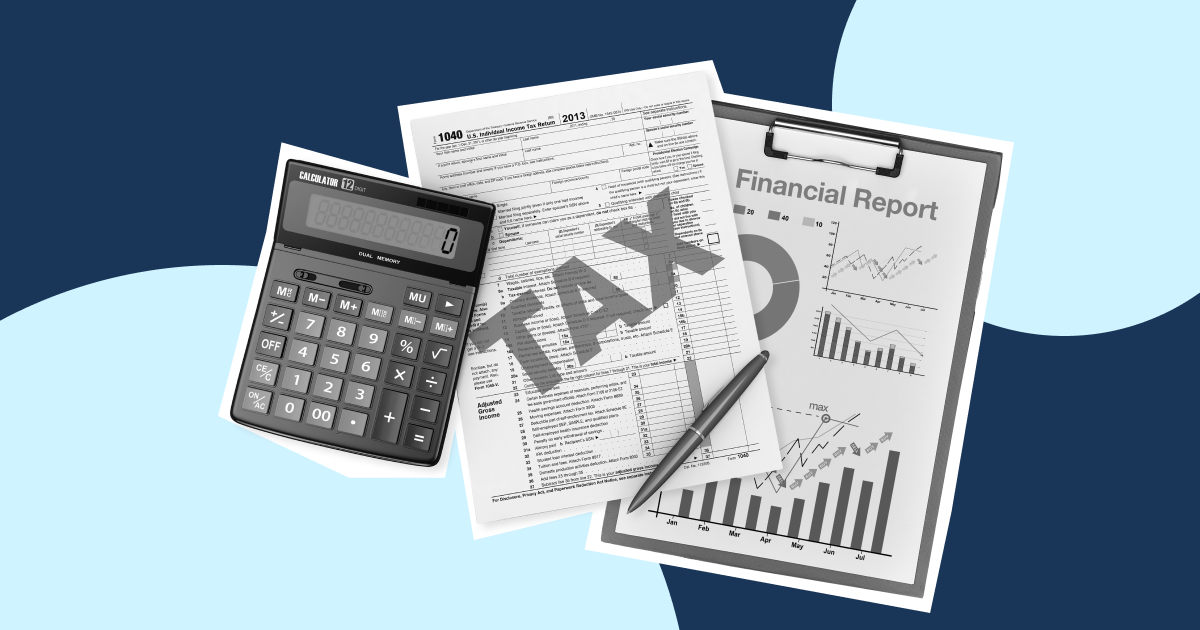Summary
Every year, businesses in Singapore need to file their Estimated Chargeable Income (ECI) within 3 months of their financial year end. For companies whose financial year ends on 31 December 2024, the deadline to file your ECI is 31 March 2025.
While Singapore maintains one of the most competitive corporate income tax rates globally (fixed at 17%), it's crucial to understand all available tax-saving opportunities before filing. This is especially important for early-stage startups looking to optimise their bottom line. Here are 5 key strategies to help your business save on taxes.
#1. Apply for the Startup Tax Exemption Scheme (SUTE)
One of the sure-fire ways companies can reduce their taxes is by tapping on tax exemption schemes. Fortunately, there are a variety of schemes available here in Singapore. One that you should be aware of is the Startup Tax Exemption Scheme (SUTE). Introduced by the Singapore government in the Year of Assessment (YA) 2005 to encourage entrepreneurship and support business growth, SUTE was further revised after the Budget 2018 announcement to offer even more support.
If your startup is eligible for SUTE, it can enjoy the following exemptions on or after YA 2020:
- 75% tax exemption on the first $100,000 of your startup’s chargeable income
- 50% tax exemption on the next $100,000 of your startup’s chargeable income
It’s worth noting that the exemptions above will only kick in for the initial 3 consecutive YAs. Once your startup has been incorporated for more than 3 years, you can apply for the Partial Tax Exemption (PTE) scheme instead.
Under the PTE, look forward to:
- 75% tax exemption on the first $10,000 of your startup’s chargeable income
- 50% tax exemption on the next $190,000 of your startup’s chargeable income
The good news is that there’s no need to do the math on how much tax exemption your startup is qualified for before filing your ECI. IRAS helps to calculate and apply the SUTE or PTE amount automatically. All you need to do is indicate that your company is eligible for the tax exemption schemes for new startups in the File ECI portal.
FYI: If you have businesses that provide distinctly separate services and are run by separate teams, you can consider setting them up as two separate companies to minimize your tax liabilities. However, be mindful that there are consequences to bear for companies who attempt to misuse any of the tax incentives provided by the government.
Learn more about the SUTE here.
#2. Support Social Causes Through the Corporate Volunteer Scheme (CVS)
Want to do good while saving on taxes? Through the Corporate Volunteer Scheme (formerly known as BIPS), your company can receive a 250% tax deduction on qualifying expenditure when organizing volunteer work with recognized Institutions of a Public Character (IPCs), albeit subject to the IPC’s agreement and having met the conditions under CVS.
What you can claim under CVS:
- Basic wages
- Related expenses necessary to providing services to IPCs
From 1 Jan 2024, the scope of qualifying volunteering activities will be expanded to include activities which are conducted virtually or outside of the IPCs' premises, and the qualifying expenditure cap per IPC will be increased from $50,000 to $100,000 per calendar year.
This means that if you’ve spent more than $100,000 in expenditure from your startup’s volunteer work, the tax deduction of 250% will only be applicable to the first $100,000 for that calendar year.
Find out more about the CVS here.
#3. Apply for the Development and Expansion Incentive (DEI) and International Headquarters Award (IHQ)
Ambitious startups with innovative solutions, this one’s for you. In order to bolster businesses to conduct new or expanded activities in Singapore and strengthen their capabilities in areas like technology, startups can tap on the DEI for corporate tax exemptions.
DEI encourages companies to engage in high value-added activities in Singapore. Companies can enjoy concessionary tax rates on qualifying income based on their commitments:
5% tax rate requirements:
- Employ at least 18 additional skilled employees in Singapore by Year 3
- Incur additional annual Total Business Expenditure (TBE) of at least S$8.0 million by Year 3
- Scale to 30 additional skilled employees and S$13 million TBE by Year 5
10% tax rate requirements:
- Employ at least 15 additional skilled employees in Singapore by Year 3
- Incur additional annual TBE of at least S$5.5 million by Year 3
- Scale to 25 additional skilled employees and S$9 million TBE by Year 5
15% tax rate requirements:
- Employ at least 8 additional skilled employees in Singapore by Year 3
- Incur additional annual TBE of at least S$3 million by Year 3
- Scale to 13 additional skilled employees and S$5 million TBE by Year 5
The IHQ award encourages companies to establish their global or regional headquarters in Singapore. Similar to DEI, companies can qualify for concessionary tax rates of 5%, 10%, or 15% based on their commitments to local employment and business spending. This applies specifically to income from qualifying headquarters activities such as:
- Management and control functions
- Strategic business planning and coordination
- Supply chain management
- Marketing control and planning
- HR management
- Corporate finance services
- Brand management services
Learn more about DEI and IHQ here.
#4. Apply for the Refundable Investment Credit (RIC)
Announced in Budget 2024, the RIC is designed to encourage companies to make significant investments in Singapore's key economic sectors and new growth areas. This refundable tax credit supports six types of qualifying activities:
- Investing in new productive capacity
- Expanding or establishing digital services, professional services, and supply chain management
- Expanding or establishing headquarters activities or centers of excellence
- Carrying out R&D and innovation activities
- Implementing solutions with decarbonization objectives
- Setting up or expanding activities by commodity trading firms
The RIC offers three tiers of support based on project scope:
10% Support Rate:
- For projects that lead to new or expanded capabilities in high value-added economic activities
- Minimum investment: $3 million
- Minimum employment: 8 employees
30% Support Rate:
- For projects that involve deeper value creation capabilities
- Minimum investment: $5 million
- Minimum employment: 10 employees
50% Support Rate:
- For best-in-class facilities or operations that significantly advance Singapore's position
- Minimum investment: $7 million
- Minimum employment: 18 employees
Key benefits:
- Can offset Corporate Income Tax, including Domestic and Multinational Enterprise Top-up Tax
- Unused credits can be carried forward or received as cash refund within 4 years
- Option for direct cash payout instead of tax offset
- Qualifying period up to 10 years per award
Here’s more information on the RIC.
#5. Utilise Enterprise Singapore's Double Tax Deduction Schemes
Is expansion in the pipeline for your startup? Look no further than Enterprise Singapore’s DTDi Scheme. For businesses expanding internationally:
- DTDi Scheme: Double tax deductions on qualifying international expansion expenses
- Automatic DTDi: 200% tax reduction on the first $150,000 of qualifying expenses per YA without prior approval
Important 2024 Tax Update
As announced in Singapore's Budget 2024, Singapore will implement a Domestic Top-up Tax on profits of group entities operating in Singapore if their effective tax rate is less than 15%. This applies to multinational enterprise groups with annual group revenue of €750 million or more in at least two of the four preceding financial years. Companies receiving incentives from EDB are not precluded but should assess the implications accordingly.
Filing Your ECI
- Determine your filing requirement
- Note the deadline (3 months from financial year end)
- Use IRAS's online calculator
- Access myTax Portal
- Follow IRAS's filing procedures
DISCLAIMER: Aspire FTE is not a tax consultant. Please check with your accountants or tax consultants for any formal advice.










%201.webp)


.webp)